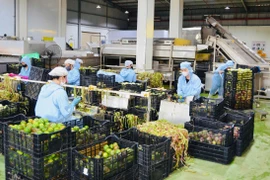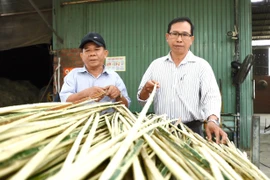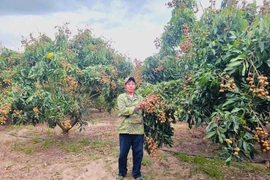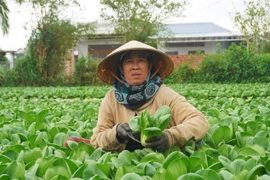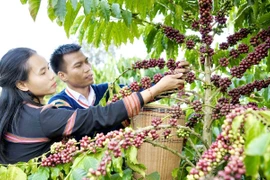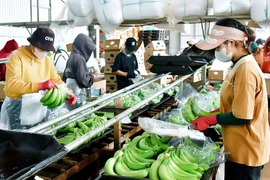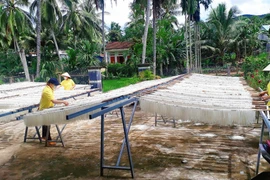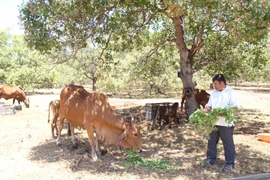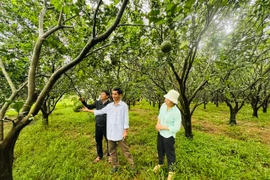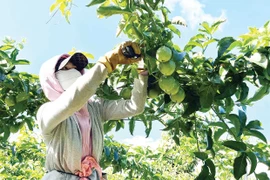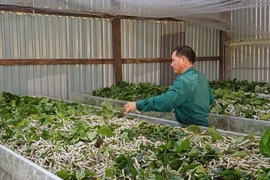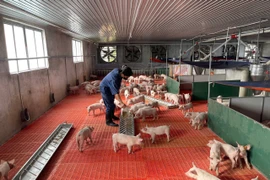With strong backing from women’s unions, they are enhancing their business capabilities and adapting to digital transformation to sustain growth and competitiveness.
Across Gia Lai, an increasing number of women are managing cooperatives in agriculture, handicrafts, and local specialty processing. However, many continue to struggle with capital shortages, limited management and planning skills, and difficulties in brand development and market access.
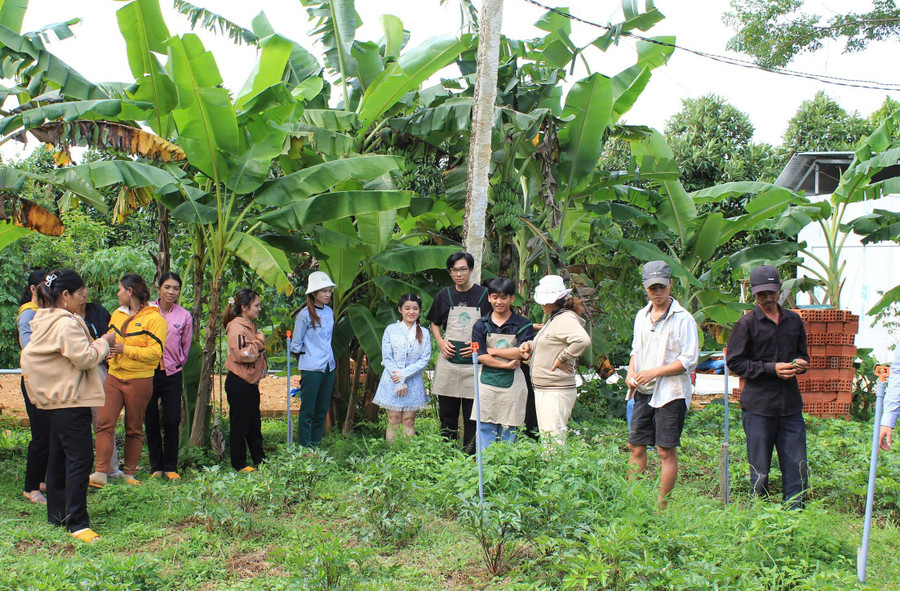
Mai Thị Mỹ Lâm, Director of An Toàn Agricultural Medicine and General Services Cooperative in An Toàn commune, said their biggest challenge lies in “leveraging local product strengths while meeting the strict demands of the modern market.” Traditional farming practices, especially among ethnic minority communities, often fail to meet quality standards, restricting market reach. Limited access to technology and funding also hampers investment in deep processing of highland agricultural and medicinal products.
At An Nhiên Agricultural and Service Cooperative in Chư Krey commune, Director Trần Thị Tầm oversees production of safe vegetables, tubers, fruits, and processed foods in partnership with 45 farming households, supplying 1.5–2 tons daily to the market. Supported by the Provincial Cooperative Development Fund, the cooperative has acquired machinery and expanded operations. Still, insufficient working capital remains a barrier to sustainable growth.
“We hope for more funding support programs and stronger connections with supermarkets and e-commerce platforms to bring our safe produce to a wider market,” Tầm said.

Meanwhile, Cồn Chim Xanh Trade & Services Cooperative in Tuy Phước Đông commune faces hurdles in developing community-based tourism. Director Hồ Thị Thân Thương noted that the sector requires substantial investment in infrastructure and skilled human resources, but local experience in tourism services remains limited. In addition, digital promotion and online marketing are still underdeveloped.
To bridge these gaps, the Provincial Women’s Union organized a recent training program for nearly 200 participants, including union officials and cooperative managers, to update them on the 2023 Cooperative Law, strengthen business planning, and introduce artificial intelligence (AI) applications in management and marketing.

Following the course, Lâm applied AI tools for digital management and product storytelling linked to cultural and natural heritage. Thương expressed hope for more training in communication and management to promote sustainable tourism while integrating environmental protection activities such as waste collection around local lagoons.
An Nhiên Cooperative also plans to use digital and AI tools for packaging design, content creation, and online product promotion. “We hope for more preferential loan policies and market connection channels so our products can secure a stronger position,” Tầm added.

According to Vũ Thị Bích Ngọc, Vice President of the Provincial Women’s Union, the Union is focusing on equipping women with modern management, brand-building, and digital skills. However, persistent obstacles include lack of capital, weak management systems, and limited market access.
“In the coming time, the Union will strengthen its role as a connector by organizing forums and seminars for female cooperative leaders to share experiences,” Ngọc said. “This will help women confidently manage cooperatives, build brands, and expand into supermarkets, e-commerce platforms, and even exports, contributing practically to local economic growth.”











